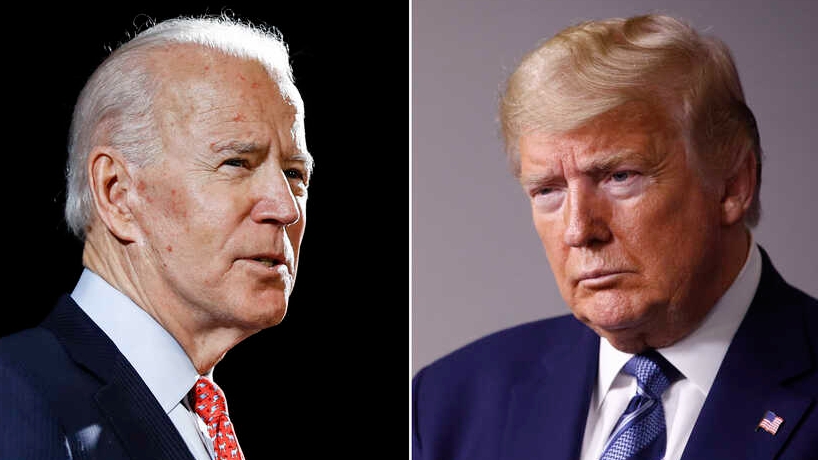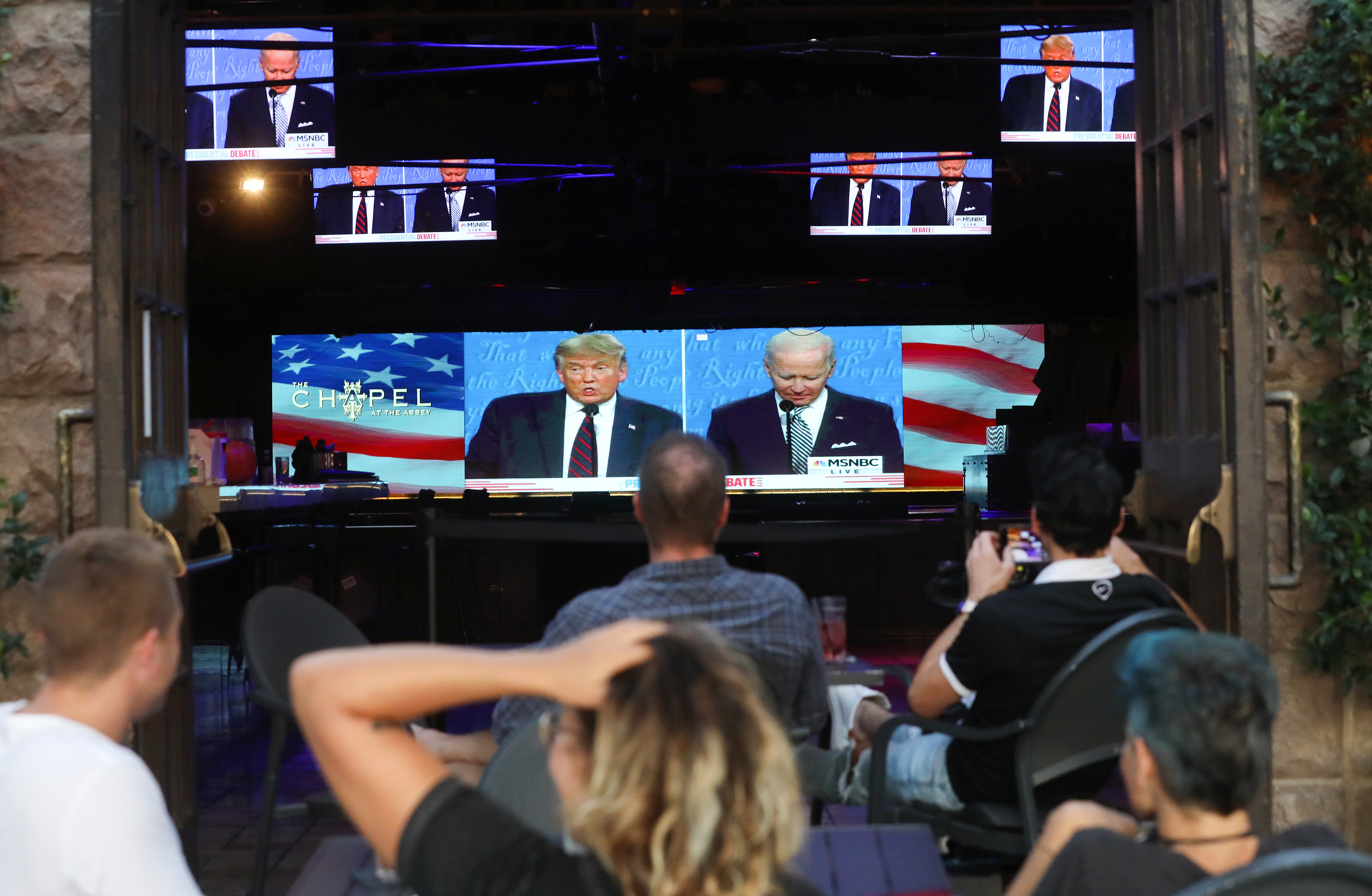
Joe Biden (L) speaking in Delaware, March 12, 2020, and Donald Trump in Washington, April 5, 2020. /AP
Joe Biden (L) speaking in Delaware, March 12, 2020, and Donald Trump in Washington, April 5, 2020. /AP
Editor's note: Freddie Reidy is a freelance writer based in London. He studied history and history of art at the University of Kent, Canterbury, specializing in Russian history and international politics. The article reflects the author's opinions, and not necessarily the views of CGTN.
U.S. President Donald Trump and former Vice President Joe Biden locked horns for the final time in Nashville, under the skillful moderation of NBC's Kristen Welker. Has the concluding debate impacted the outlook of the election though?
Presently, polling indicates that Joe Biden is carrying a healthy lead in the number of college votes, with 232 versus 125 with 185 undecided, according to RealClearPolitics' poll. The pressure, therefore, was on the incumbent to shift the dial.
The challenge for Joe Biden was to avoid the type of gaffe which has marred his long career in politics. Much has been made of the analogy of "carrying a Ming vase across a marble floor," the vase representing the electoral position and the marble floor, the potential risk and fragility of that lead. The tension on the stage appeared to indicate that such an analogy was certainly apposite.
COVID-19 response was once again at the heart of the debate. Where the first debate had been a free-for-all, the debate on October 22 offered greater policy detail and relative composure from both candidates. Trump reiterated his faith in a vaccination and declared his mass inoculation plan -"operation warp speed" was ready to go as the U.S. "rounds the corner."
Whether or not this is interpreted as a part of a strategy or merely "hope" remains to be seen. What was of note, was a reluctance throughout the debate to speak of America in post-COVID terms, beyond an idea of returning the economy to pre-COVID levels.
A major contributing factor to Donald Trump's victory in 2016 was a promise of "making America great again" and the hope of a better future. The message from the president this time, appeared to be "don't vote for a worse future with Democrat socialism." Far from inspiring to the undecided voter.
Trump did open a potentially advantageous attack line on his rival by emphasizing the need to reopen America, portraying Biden and the Democrats as leaders presiding over "ghost towns," such as New York.
Biden meanwhile remained on script, framing the election as a referendum on Trump and his leadership throughout the crisis. The former VP, often prone to rambling answers benefited from a limited topic strategy and effective pre-prepared barbs "anyone responsible for hundreds of thousands of deaths should not remain president."
The restraint that characterized the opening exchanges was brought to an end as the debate shifted to character, and Trump was able to pursue the New York Post's story regarding Hunter Biden's business dealings and alleged kickbacks that the then Vice President received in office.

People sit and watch a broadcast of the first debate between President Donald Trump and Democratic presidential nominee Joe Biden at The Abbey, with socially distanced outdoor seating in West Hollywood, California, September 29, 2020. /Getty
People sit and watch a broadcast of the first debate between President Donald Trump and Democratic presidential nominee Joe Biden at The Abbey, with socially distanced outdoor seating in West Hollywood, California, September 29, 2020. /Getty
Biden was able to counter with accusations of Trump's own lack of transparency in relation to his tax returns. In a bid to contain Trump's opportunity to opine on his successes, Biden artfully sent the president on a prolonged digression regarding his personal business affairs, rather than those of state. Polls indicate swing voters are looking for assurance and focus during the crisis and this Biden tactic was well-deployed.
On the topic of race, Trump was able to appeal to his base but also appear more magnanimous than in the past. Citing the First Step Act, which has contributed to a drop in the federal prison population and which received bipartisan support. Law and order is often seen as a vital subject for suburban America, a demographic where the president urgently needs to bolster support.
President Trump also sought to identify Biden as a career politician who had "achieved nothing" and as Biden shifted to proposed policy, the president was able to repeatedly ask "Why haven't you done this before… after eight years in office?"
One of Trump's major strengths, is a perception of "getting things done," COVID-19 has damaged this image, but to those wavering, it was an effective argument that a vote for Biden, is a vote for more of the same from a career politician of 47 years. Trump returned to portraying himself as the outsider, echoing the previous calls to "drain the swamp," which proved so effective in 2016.
The battle for the White House is a game of small margins, where battleground states dictate the outcome. One of the most potentially significant moments of the night came during a debate on energy, Biden was pressed into committing to "phasing out" oil and other fossil fuels.
This will be particularly concerning to voters in Texas – increasingly seen as a potential battleground but also in Pennsylvania. Hillary Clinton's loss of Pennsylvania in 2016 was a key factor in her defeat and similar comments in relation to the coal industry contributed to her loss of the state.
Aside from these comments, both candidates will have reassured their bases. With 47 million votes already cast however, it is unlikely that the debate will have made a significant impact on the overall campaign.
The pressure therefore remains on President Trump to rally support and enthusiasm in what has been a muted presidential campaign season, the nature of which appears to favor the former Vice President.
(If you want to contribute and have specific expertise, please contact us at opinions@cgtn.com.)